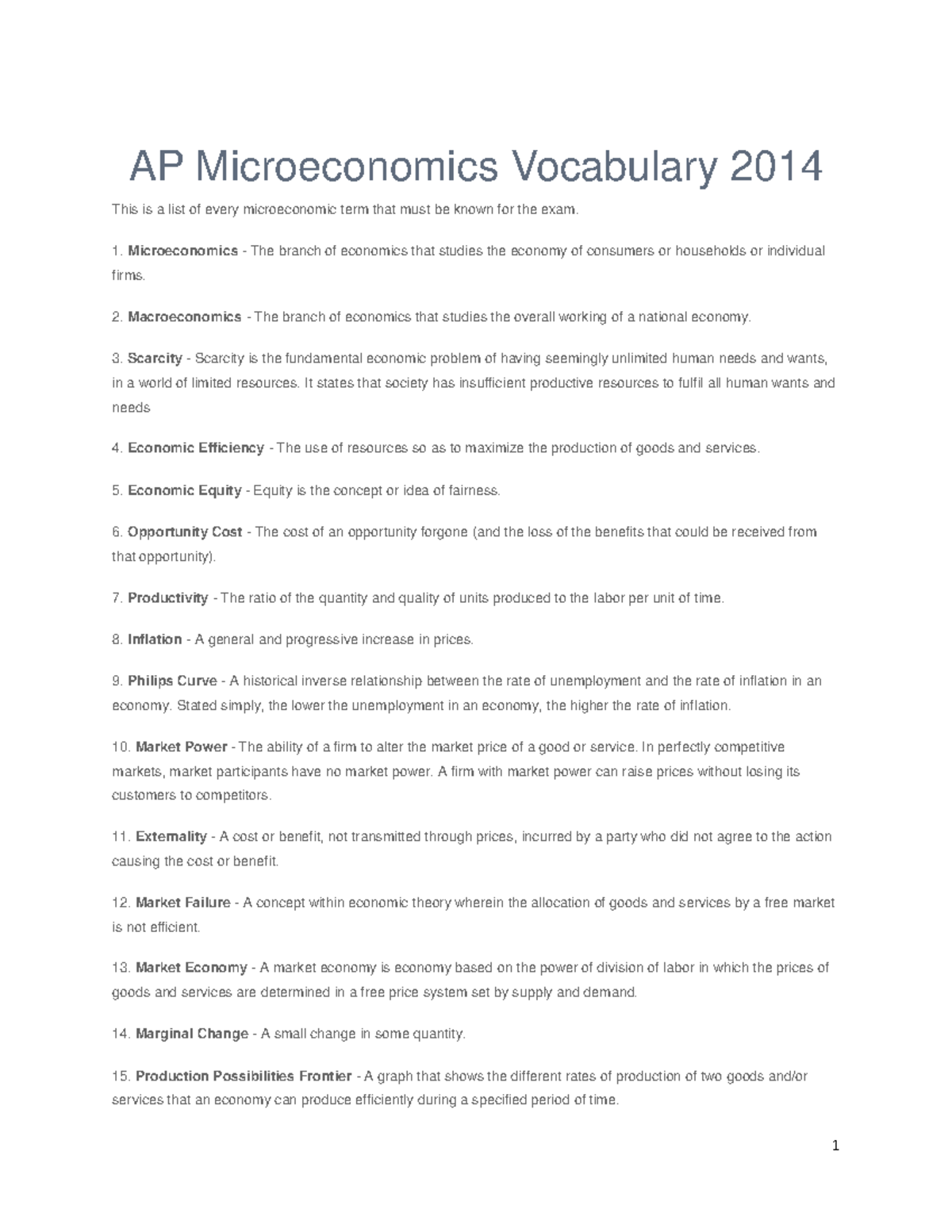Economics is a complex field that involves the study of how individuals, businesses, and governments allocate resources. In order to fully understand the concepts and principles of economics, it is important to be familiar with the various terms and vocabulary used in the field.
Whether you are a student studying economics or someone interested in gaining a better understanding of economic issues, having a solid grasp of key economic terms can be beneficial in navigating the world of finance and business.
List of Economics Vocabulary:
1. Supply and Demand – The fundamental economic principle that describes the relationship between the availability of a product or service and the desire for that product or service.
2. Inflation – The rate at which the general level of prices for goods and services is rising, and subsequently, the purchasing power of currency is falling.
3. Gross Domestic Product (GDP) – The total value of all goods and services produced within a country in a given period of time.
4. Monopoly – A market structure in which a single seller controls the supply of a particular product or service.
5. Fiscal Policy – The use of government spending and taxation to influence the economy.
Understanding these key economic terms can help you make sense of economic news, policy decisions, and market trends. By familiarizing yourself with these concepts, you can better analyze and interpret economic data, and make informed decisions in your personal and professional life.
Whether you are a business owner, investor, policymaker, or simply a curious individual, having a strong foundation in economic vocabulary can enhance your ability to participate in economic discussions and debates.
In conclusion, economics is a vital field that impacts every aspect of our lives. By familiarizing yourself with key economic terms and concepts, you can gain a deeper understanding of the forces that shape our economy and society. So, take the time to learn and master the vocabulary of economics, and empower yourself to navigate the complexities of the financial world with confidence.
